Conferences can be confusing and awkward – are they part Business Meeting, or part Oktoberfest?
The Problem:
Sales Conferences highlight the conflict Sales Managers sense about their role and knock-on effect that has on the relationships with their representatives.
I recently spoke with a sales manager who had just returned from a sales conference and had finally resolved the conflict in her own mind.
“Conferences” she said, “are often seen as a reward for representatives’ hard work. And because there’s lots of company funded parties, dinners, and recreational activities, well, you know, it’s easy for them to see it as a company-paid-holiday.
So when I used to talk with my team about the conference also being a business meeting; being and doing better, and learning, they’d look at me with a ‘not now, Mum’ frown.
As a representative I used conferences to find out about new things. And not just about products. By talking with and listening to people who were more successful than me I discovered “be and do better” aspects of selling.
I was promoted to sales manager, in part, because I was a great salesperson. So I think the conflict arose because I assumed that the team wanted to be as good as me, if not better, and the conference was a great place to give them just what they need. After all, making sales and achieving business goals is their job and why we’re having the conference in the first place.
I felt bad and confused about wasting the opportunity. I want to help them succeed, yet I didn’t want to get a party-pooper reputation and be seen as ‘just’ a company-person. I also knew that I had to do something to change this so that the team could get the most from the conference.”
Here’s how she resolved the conflict.
First, she realised that it was a mistake to treat the team members as she wanted to be treated (when she was a representative).
Second, she tapped into 2 traits that all her sales team members had; an inquisitive nature and a competitive bent.
So, in the team meeting (at the venue) before the conference officially started, she introduced an award for “The Best Idea On Tour.”
She made it very clear that to continue the team’s climb in the rankings they needed to find new approaches to connect with their customers by creating, not just communicating, value.
Instead of starting from scratch she encouraged the team to get ideas from talking AND listening to people (anyone and everyone) over the week; in meetings, at presentations, during breaks, meals, and at parties.
All ideas were worthy of mention. The ideas were to be used to stimulate discussion after the conference; a source of inspiration.
“After all,” she said “innovation is simply being open to possibilities.”
She told me that it was important to get her team thinking of doing something different. The challenge was not to use sales calls to experiment with a variety of approaches with their customers, but there were answers out there.
“What I do know is that it all starts with research and talking AND listening; adapting and tweaking the ideas of others. And guess where the best place is to find the best ideas?”
Eight Conference Questions:
Here are some of the questions the team asked others to get ideas:
What are the top 3 things that make a difference in your sales calls? We don’t want to be clones of these people, so we wanted to discover their strategies rather than their tactics.
What do you expect to achieve in the next 60 days? High performers hit the ground running. This gives you some idea of their efficiency, priorities, plans, and goals.
What do high performers do that’s different to the more average performers? High performers are not born, they grow and develop. We’d like to know what activity, trends, or patterns they have in common.
What are 2 things (outside the call) that really drive your results? Did we have any organisational blind spots?
What do you do in your spare time? Maybe there are other talents that subconsciously help in high performance.
How do you plan to deal with ….? This can be anything from changes in technology, to new competitors, to new brand extensions of old products to a reduction in access. High performers don’t just think about things, they act.
What are you going to do differently when you get back home? This was an alternative to the question above.
What would you say/do when a customer says……..?
The Bottom Line: There’s always a choice for you and your team.
Spend the conference mining the most fantastic source of inspiration, encouragement, and connection.
Or have a week off.




